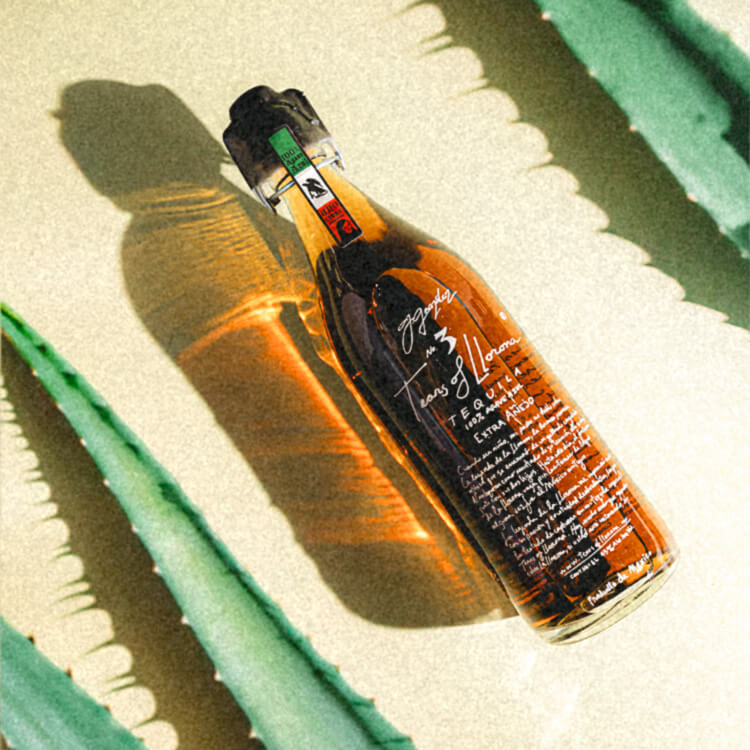Tequila’s evolution from a regional Mexican spirit to a global phenomenon is as rich and complex as the drink itself. This detailed journey will uncover the ancient beginnings and cultural significance of the origin of tequila. It also highlights its impressive rise to international fame. We’ll then delve deep into the history of tequila, exploring how this iconic spirit originated and became a cherished part of global culture.

Tracing Tequila’s Origins: Ancient Beginnings
The true origin of tequila begins in the pre-Columbian era. During this time, indigenous peoples such as the Aztecs fermented aguamiel, the sweet sap of the blue agave plant, to produce pulque. This viscous drink played a crucial role in religious ceremonies. It was also believed to be a gift from the gods, particularly Mayahuel, the goddess of fertility and the maguey. Pulque, revered for its sacred qualities, was restricted primarily to priests and nobility during ritualistic ceremonies. This early use of agave laid the foundation for a more refined spirit. It was from these beginnings that distillation techniques would later introduce new levels of refinement.
Spanish Influence: The Birth of Distilled Tequila
The pivotal transformation of how tequila originated after the Spanish conquest in the 1520s. The Spaniards ran out of their brandy supplies. They then applied their distillation knowledge to the native fermented beverages, leading to the birth of a rudimentary form of tequila. By distilling the fermented agave, they laid down a critical chapter in the history of tequila. This created a spirit that would eventually be refined into the modern drink. The first mass production of this agave spirit was documented in the late 16th century when the Marquis of Altamira built the first large-scale distillery in what is now Tequila, Jalisco. This period marked a significant shift from traditional brewing techniques to a more systematic production that could meet growing demands.
Establishing Tequila’s Identity: A Key Chapter in its History
Tequila’s identity began to crystallize in the 18th century. That’s when the Cuervo family received royal grants to commercially cultivate agave on their lands in Jalisco. Later, in 1795, José Antonio de Cuervo was granted the first license to manufacture tequila commercially. This era saw the gradual establishment of tequila as a commercial entity, with families like Sauza and Cuervo pioneering its large-scale production. Naming the spirit after the town of Tequila solidified its geographical and cultural roots. This act tied the spirit’s identity to its place of origin, setting the stage for its recognition as a distinct type of Mexican liquor.
From Local Drink to National Pride: Tequila’s Cultural Origin
Throughout the 19th century and into the early 20th century, tequila began to symbolize Mexican culture and national identity. During the Mexican Revolution (1910-1920), tequila became a prominent symbol of national pride. Revolutionaries and folk heroes like Pancho Villa favored tequila over other spirits. This embodied its role as a true drink of the people. The post-revolutionary period saw a surge in tequila’s popularity. It became strongly associated with the festiveness of Mexican life, often featured during celebrations and national holidays. This period helped to cement its cultural significance within Mexico.
Tequila’s Global Ascent: A Modern Chapter in its History
The latter half of the 20th century marked tequila’s rapid ascent to global fame. The United States played a crucial role in this expansion. This was especially true during and after World War II, when spirits like rum and whiskey were in short supply. Americans then turned to readily available Mexican tequila. The invention of the margarita around the 1940s further popularized tequila in the international cocktail scene. By the 1980s and 1990s, premium brands began to emerge, focusing on quality and craftsmanship. This appealed to a more upscale international market. These efforts were bolstered by new regulatory measures. One key measure was the establishment of the Tequila Regulatory Council (CRT) in 1994. The CRT enforced strict standards on how and where tequila could be produced.
Preserving the Origin of Tequila: Modern Efforts
In contemporary times, tequila enjoys a revered status among spirits, known for both its deep historical roots and its modern versatility in mixology. The spirit continues to be produced primarily in the state of Jalisco, with strict regulations that preserve traditional methods while encouraging sustainable and innovative practices. Artisanal producers and large-scale manufacturers alike focus on maintaining the integrity of tequila by adhering to traditional methods like using brick ovens and volcanic stone mills (tahonas). These traditional techniques are celebrated for preserving the natural flavors of the agave, even as modern production methods have streamlined some aspects of production to meet global demand.
Conclusion
The journey of tequila, from an ancient ceremonial libation to a staple of global cocktail culture, is a testament to its enduring appeal and cultural importance. As we’ve explored the rich history of tequila, we’ve gained insights not only into the spirit itself but also the vibrant cultural tapestry of Mexico. Tequila is more than just a beverage; it’s a cultural artifact, deeply infused with the origin story, spirit, and passion of its people. As it continues to evolve, the essence of tequila’s origins remains rooted in tradition, making each sip a taste of its remarkable past. Cheers to the enduring historical journey of tequila—a journey as dynamic and enduring as the spirit itself.


